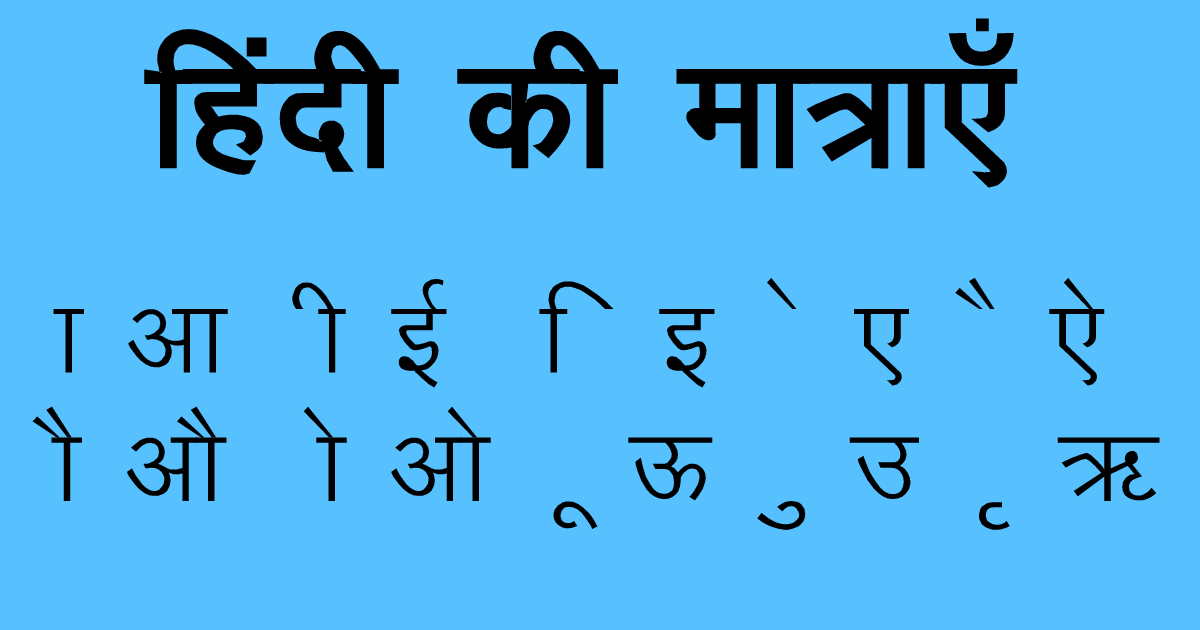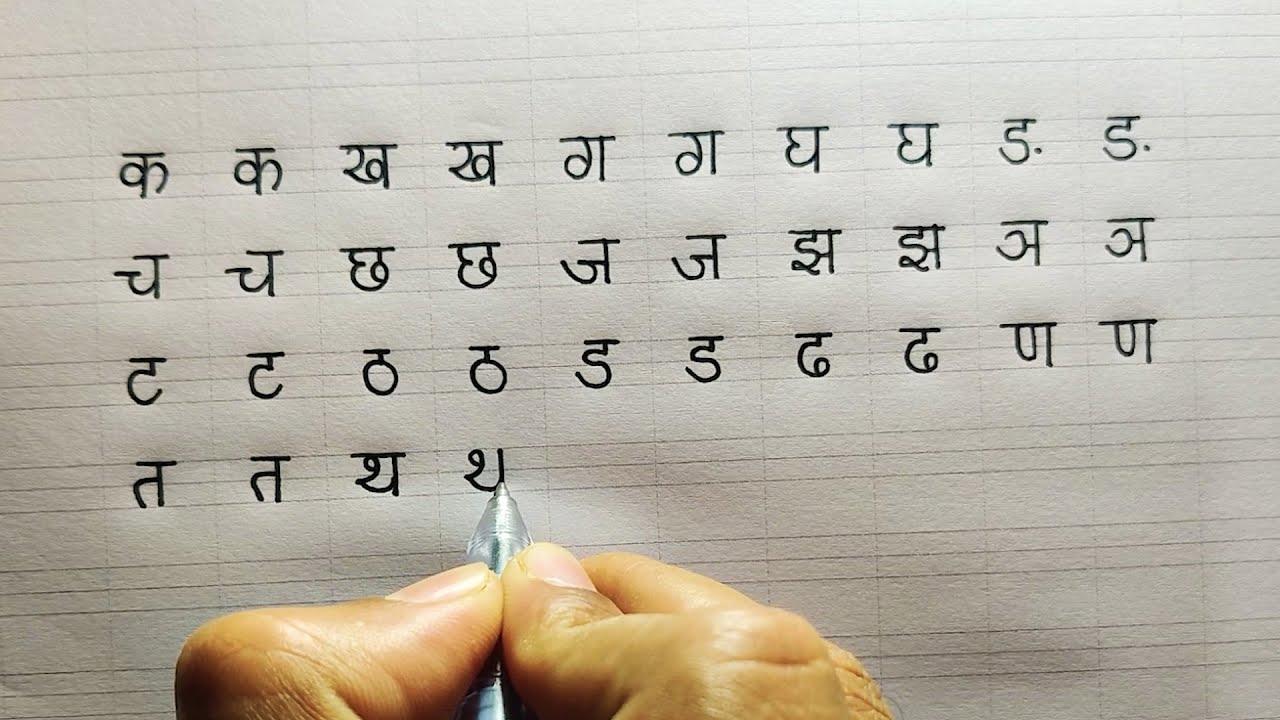We all make mistakes from time to time. Some of them, nevertheless, have the potential to land us in a sticky or humiliating situation. When picking up a new language, this becomes glaringly obvious. Any Hindi language learner is sure to encounter the typical issue of spelling errors sooner rather than later. The wrong vowel, consonant, or combination of the two is to blame for these spelling errors. Even the most literate people sometimes make these blunders.

Why are Hindi Spelling Mistakes So Common?
(Ph)Fear of Phonetics
When first learning Hindi, it's common for learners to make certain pronunciation blunders. This may have you scratching your head for a variety of reasons, including accent, pronunciation, and syllable stretching. There are a few things that will help you immensely when learning Hindi.
- Method of Writing: The Hindi script is based on the alphasyllabary system, which treats vowels and consonants as separate units.
- Unfamiliar Sounds: For speakers of languages other than Hindi, there are a few novel phonemes that might be somewhat perplexing. That being said, pronouncing them correctly can be a bit of a challenge.
- Syllables: The meaning of a word can be entirely altered by altering the length of a syllable.

The Gender Issue
English verbs are inherently gender-neutral; the only part of the language that changes depending on gender is the pronouns. Nevertheless, Hindi does not work that way. Confusing oneself in gender-verb conjugation is a prevalent grammatical error in Hindi. The regulations might be a bit confusing at first. However, there is a single secret code that may be used to overcome this hurdle.
- Feminine Gender: The ii-sound is the last consonant of every verb and other verb conjugations. All nouns and pronouns, whether solitary or plural, are subject to this rule.
- जाती है (jaaTii hai) = “goes”
- सोती है (SoTii hai) = “sleeps
- “खाती है (khaaTii hai) = “eats”
- Masculine Gender: Every verb and its conjugations finish in -aa for the singular male gender. Every verb and its conjugation ends in -e when used with the masculine plural.
- Singular:
- जाता है (jaaTaa hai) = “goes”
- सोता है (SoTaa hai) = “sleeps”
- खाता है (khaaTaa hai) = “eats”
- Plural:
- जाते हैं (jaaTe hain) = “go”
- सोते हैं (SoTe hain) = “sleep”
- खाते हैं (khaaTe hain) = “eat”
- Singular:
Baffling Homonyms
Nothing is foolproof when it comes to Hindi spelling, no matter how much practice you've had. You can't expect to find a quick fix for everything. Therefore, be easy on yourself and don't be too hard on yourself when you make a mistake. It takes time to develop and hone some abilities. The idea of "homonyms" is one of the trickiest. Note that these word pairings are carbon duplicates of one another. Without the right background and practice, novices to Hindi here can easily mess up.
Start a conversation with basic Hindi greetings.
"Where," "What," "Why"
The Hindi sentence structure and word order are our next issues to tackle, particularly, the proper placement of question words. Be careful, because many Hindi blunders stem from misunderstandings on this subject! In Hindi, the interrogative phrases come before the main or helping verb, unlike in English. Here is a list of frequently asked questions in Hindi:
- क्या (kyaa) = “what”
- कब (kab) = “when”
- कहाँ (kahaan) = “where”
- क्यों (kyon) = “why”
Remember to Be Polite!
When speaking in Hindi, the last thing you want to do is upset somebody. Proper behavior, including politeness and respect, is highly valued in India. In formal settings, Indians, like individuals in many Asian nations, have certain terms and phrases to address elders, strangers, and others with dignity. It's more of a cultural difference than a series of Hindi errors. Therefore, anytime you meet someone:
- for the first time;
- elderly;
- of the opposite gender;
- officially senior to you;
- who is a stranger,
The term आप (aap) is preferred over तुम (tum) as a general rule. Both of these terms mean "you" in Hindi. Keep in mind that आप (aap) is more than a mere word; it is a mannerism and reverence gesture.
Master Hindi with spoken Hindi classes on Superprof!
Avoid Redundancy
Students of Hindi often make the error of stuffing too many words into a phrase. Hindi isn't the only language that commits the crime of duplication, but it's still crucial to discuss it. When we use the same words over and over again, it makes us sound ungainly and disorganized. When we use redundancy, our sentences lose their vigor and become dull and uninteresting strings of words. Some typical errors people make when learning Hindi are listed below.
Mind Your Diacritics
Diacritics in Hindi are unique. In Hindi, they are known as maatraa. Let's take a look at how omitting a few seem innocuous signs might entirely misrepresent your assertion.
- सुना (SuNaa) = “Listened” / “Heard” | सूना (SuuNaa) = “Feeling empty” / “Deserted”
- काम (kaam) = “Work” | कम (kam) = “Less” / “Few”
- दिन (DiN) = “Day” | दीन (DiiN) = “Poor” / “Underprivileged”
- सिलना (SiLaNaa) = “To sew” | सीलना (SiiLaNaa) = “Damp” / “Soggy”
- ओर (or) = “Toward” | और (aur) = “And”
You can see how a word's meaning may be drastically altered by changing its diacritics. Another typical error that Hindi learners make is not understanding the importance of diacritics. Be cautious of them!
Convey your gratitude to someone with the finest Hindi words for 'thank you'.

Local Dialects
There are slang terms in almost every language. Examples of such things include regional accents, local dialects, synonyms, and so on. So, in essence, various dialects might use the same word in quite different ways, while the meaning remains the same. Words like "yeah," "yup," and "ya" all imply "yes" should give you an idea. Many other words that signify the same thing are also used, such as "man," "dude," "buddy," "bud," "pal," and so on. Similarly, a group of related words in Hindi could throw off a learner. Here are a few examples:
- वह (vah) / वो (vo) [English: “He” / “She” / “That”]
- सब (Sab) / सारे (Saare) / सभी (Sabhii) [“All” / “Everyone”]
- क्यों (kyon) / काहे (kaahe) / किसलिए (kiSLiye) [“Why”]
- कहाँ (kahaan) / किधर (kidhar) ["Where"]
Funny Hindi Spelling Mistakes
Use of “ब (ba)” in place of “व (va)“
| Incorrect Spelling | Correct Spelling |
|---|---|
| बिषेला | विषेला (Poisonous) |
| बन | वन (Forest) |
| बिपत्ति | विपत्ति (Calamity) |
| दवाब | दबाव (Pressure) |
| बधू | वधू (Bridge) |
| बस्तु | वस्तु (Thing) |
Use of “छ” (cha) in place of “क्ष” (ṛa)
| Incorrect Spelling | Correct Spelling |
|---|---|
| लछमी | लक्ष्मी (Hindu Goddess of Money & Treasure) |
| सिच्छा | शिक्षा (Education) |
| छण | क्षण (Moment) |
| छमा | क्षमा (Pardon/Exemption) |
| क्षात्र | छात्र (Male Student) |
Use of “श” (sha), “स” (sa) and “ष” (ṣa)
| Incorrect Spelling | Correct Spelling |
|---|---|
| कुसल | कुशल (Skilled) |
| प्रसंशा | प्रशंसा (Applaud) |
| प्रशाद | प्रसाद (Blessed food) |
| पोषक | पोशाक(Costume) |
| सहीद | शहीद (Martyr) |
| स्वास | श्वास (Breathe) |
| नास | नाश (Destruction) |
| कश्ट | कष्ट (Pain) |
| शुशामा | सुषमा(First Ray of Sun) |
Use of “न” (n) in place of “ण” (ṇa)
| Incorrect Spelling | Correct Spelling |
|---|---|
| प्रान | प्राण (Life) |
| साधारन | साधारण (Common) |
| हिरन | हिरण (Deer) |
| रामायन | रामायण (a Hindu Mythology) |
| वीना | वीणा (Indian Musical Instrument) |
| प्रमान | प्रमाण (Proof) |
| उदाहरन | उदाहरण (Example) |
Mistakes of “र्” (रेफ) (ra)
| Incorrect Spelling | Correct Spelling |
|---|---|
| आर्दश | आदर्श (Ideal) |
| नर्क | नरक (Hell) |
| स्वरगीय | स्वर्गीय (Heaven departed) |
| कार्यकर्म | कार्यक्रम (Program) |
| मरयादा | मर्यादा (Dignity) |
| आर्शीवाद | आशीर्वाद (Blessing) |
| दुदर्शा | दुर्दशा (Bad Condition) |
| परसाद | प्रसाद (Blessed food) |
Praise someone with the most beautiful Hindi compliments.
Use of “आ” (aa) in place of “अ” (a)
| Incorrect Spelling | Correct Spelling |
|---|---|
| हथिनी | हथिनी (Female Elephant) |
| बारात | बरात (Marriage Ceremony) |
| आधीन | अधीन (Under the control of) |
Use of “इ” (i) in place of “ई” (ī)
| Incorrect Spelling | Correct Spelling |
|---|---|
| दिवाली | दीवाली (Hindu’s Fest) |
| बिमारी | बीमारी (Disease) |
| दिवार | दीवार (Wall) |
| श्रीमति | श्रीमती (Mrs.) |
| महिना | महीना (Month) |
Use of “उ” (u) in place of “ऊ” (ū)
| Incorrect Spelling | Correct Spelling |
|---|---|
| हिंदु | हिन्दू (Hindu) |
| चाकु | चाकू (Knife) |
| जादु | जादू (Magic) |
| सुरज | सूरज (Sun) |
How to Avoid Spelling Mistakes in Hindi
Practice Hindi Spelling
Make a note of all the times you make a spelling error. Understand the distinction and have plenty of opportunities to practice using the right spellings.

Answer Questions by Coloring or Drawing
Choose your colors to mark their answers. This way, Hindi practice worksheets will get you invested in your learning. You'll not only learn the right spelling of words but may end up having a blast filling out the worksheets with shapes and colors to indicate your responses.
Grab people's attention with the funniest Hindi jokes.
Grasping the Grammar
A better grasp of sentence structure is one benefit of studying Hindi grammar concepts such as the Sanyukt Akshar, opposing terms, plurals, and synonyms. You may benefit from practicing spelling words in solitary and plural forms through grammar activities.
Reading Comprehension
To become a better reader, read aloud to yourself frequently using the right spelling of words and phrases. Additionally, read the questions and answers while working on the exercises in the Hindi worksheets. In this approach, students become accustomed to seeing the Hindi language spelled correctly and may learn to utilize them in context when writing.
Learn Hindi with a professional tutor in online Hindi classes on Superprof.
Summarise with AI:














